Péter Scherer
Nacimiento : 1961-11-16, Ajka, Veszprém, Hungary

Kacsa
This film is a tribute to a humiliated and destroyed nation. "As Long as the Grass Grows" is an alternative, ancient and humble creation story, where man is not the crown of the creation, but the weakest of all creatures. The film takes us back to the beginning of time, where Old Man begins to create the world out of a handful of mud. Everything he creates is new and nameless, and affects the rest of the world. Even feelings and desires are unknown and when they emerge, the world becomes more and more complicated.
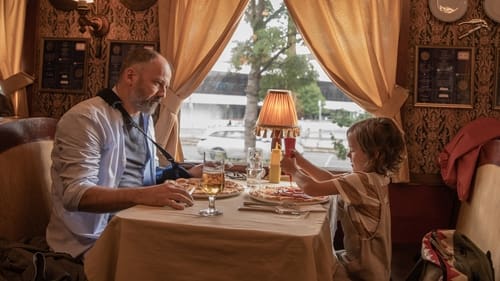
Producer
A popular writer with lack of inspiration (Szabolcs Thuróczy) and his never-seen son meets unexpectedly. From there they have to deal with living with the other in joy, in emtions and with the imagination of the child, this tales goes beyond reality.

Kulcsár Emil
Durante la Guerra Fría, el servicio secreto de Kádár inició un juego de seguridad estatal más peligroso que nunca
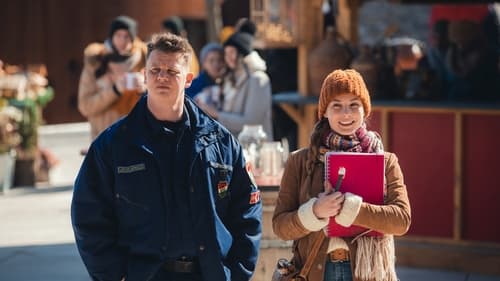
Pali
A firefighter develops a fear of heights and has strange visions after his wedding proposal goes up in smoke. Will a teacher he meets later cure his vertigo and mend his broken heart?

Presenter

Mesélő

Pincér
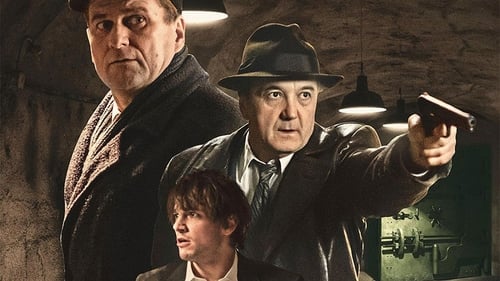
Honti Kálmán
The police hire a convicted bank robber to crack the Ministry of Interior's vault during the final days of the 1956 Hungarian Revolution. But what they find inside is quite different from what they were expecting.
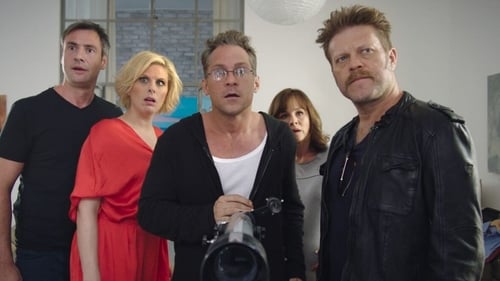
Brandó

Erno Blaskovich lo ha perdido todo tras la Revolución Húngara de 1848, pero Kincsem, un magnífico caballo, dará un giro a su vida hasta ese momento vacía, sin sentido y autodestructiva, dándole una oportunidad de cobrarse venganza y recuperar su amor y su honor.

Berger
Erno Blaskovich lo ha perdido todo tras la Revolución Húngara de 1848, pero Kincsem, un magnífico caballo, dará un giro a su vida hasta ese momento vacía, sin sentido y autodestructiva, dándole una oportunidad de cobrarse venganza y recuperar su amor y su honor.

Kronheim
The story of a love born in the strangest of circumstances between two long-suffering survivors of the hell that was the Holocaust. Their love overcomes all obstacles in its path, including death – when it eventually comes. Set in the Swedish rehabilitation camps during the autumn and winter of 1945.

Pocak
Novák cannot sleep. Not to disturb his girlfriend, he spends his nights in the streets of Budapest and gets into weirder and weirder, more and more impossible and dangerous situations and liaisons. Unless he dies, he may regain his dreams by them.

Andor is a young chess player, who even calls his pet turtle Kasparov. “Do you think I will succeed? - the boy asks her before the decisive tournament. "If I win, he will never come back." Who is Andor talking about and why is he either afraid of this return, or wants it?

Bodri

Hungría /// La historia de la más famosa celebridad gay en Hungría, que vive abiertamente su sexualidad y lucha por los derechos de los homosexuales en una sociedad donde se niegan tantos valores alternativos. De repente sucede algo.... un creciente interés por la hembra de la especie...
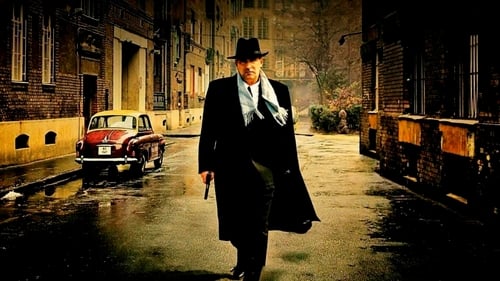
Emil Kulcsár
Budapest, Hungría, Navidad de 1957. El Estado, inseguro después del fracaso de la revolución de 1956 y sometido cada vez más a la influencia de una renovada atmósfera estalinista, ha decretado que todos los oficiales de seguridad deben pasar un examen para verificar su lealtad. Pero para ser realmente efectivo en un mundo sombrío donde reinan la sospecha y los secretos, los sujetos deben ignorar que están siendo probados.

A man pretends to be a manager and helps veteran rockstar god, Johnny G. and his ex-band to reunite once more.

Frankie
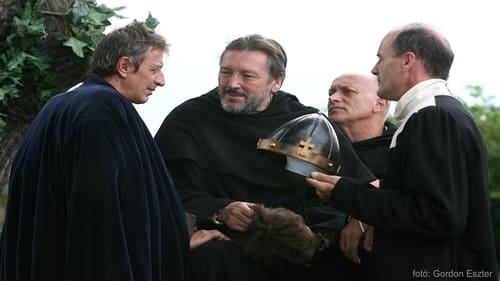
Short Man
Concerning the Mátyás era in Hungarian history, during the reign of Matthias Corvinus (1443–1490), the film focuses on three eras of the king's life: the young Mátyás fights for the throne, the older Mátyás as king, and the fate of the royal crown and the royal heir after his death.

Csumpi
After they got imprisoned, small-time criminals Kuplung and Csumpi tell their stories to their cell-mate of how they have planned the most imperfect robbery. Their big idea was to rob the Money-liquidation Warehouse. The movie shows how they fielded a team to execute the robbing and how everything went wrong.

Bigali
Los padres de Miklós Fenyö regresaron a la Hungría comunista a mediados de los años sesenta, cuando todos los demás huían hacia el oeste. Los viejos amigos de Miki no saben qué hacer con su escandalosa ropa, su impecable acento americano y su colección original de Buddy Holly 45s. Su novia de la infancia es fría y distante, mientras que el tipo duro local Röné no se conmueve ante el desafío de su corona de rock 'n' roll. Pero eso no es todo. Cuando las autoridades ven el efecto que las caderas giratorias y la música obscena de Miki tienen sobre las adolescentes, no lo tolerarán. El trabajo de su padre está en juego y, por primera vez, Miki debe cumplir las reglas. No tiene más remedio que ingresar al concurso de talentos local ...

Feri

Karcsi, a Roma policeman, lives with Eva, a Swede. One day he is called to the scene of the murder of a wealthy trafficker named Schulter. He begins to investigate the crime, interrogate neighbours and suspects, and untangle a complex situation - one that he, himself, complicates even further. For he is a gypsy, who despite being adopted and raised by "regular" Hungarians, has his nose rubbed in his minority status every day. The film, which is based on the novel by Ákos Kertész, is a shrewd genre work full of dusky humour and surreal situations. Tabló follows a vivid succession of strange images that eventually lead to the emergence of the central story about a charismatic police officer on a tireless quest for the truth, though he must fight against virtually everyone and is just as fallible as the next person. Tabló makes a statement on the issue of race and racism - or, indeed, relations between any minority and majority.

Too engaged in his sexual pursuits to offer his editor any decent material, David, a self-centred journalist, is challenged by his editor to go on ten dates with ten different women and publish the results in a tell-all book. His former girlfriend is then hired to type up his notes

The story is based around an American Idol kind of TV talent show and the eventual winner of the contest: a young orphan woman, who works at an orphanage herself. As I learned from the werkfilm on the DVD, the story was specifically written for Oláh, who in real life was the runner-up of the very first such TV show in Hungary “Megasztár” (“MegaStar”) in 2004. She didn’t win there despite being many viewers’ favorite and having a terrific voice. It is kind of a consolation that she won in the movie, although reading the legal troubles about getting her fee must have made the victory sour.

Gázos

Híresség

Pepe
Jancsó’s farce, similar to the previous ones, is about our time and about death. Pepe marries into a family of mafiosi, with the father-in-law rolling in money. In a joint venture they establish the first Hungarian Prison Limited company, where there is a menu, the prisoners are residents, and they furnish the place of execution for those volunteering to execute themselves. It turns out that the first voluntary hanging should be demonstrated on Pepe. In 180 AD Emperor Marcus Aurelius is dying in Vindobona, being fed with blades of hay by uncle Miki himself, and his son Kornél Mundruczó. Kapa provides for communication: he insists on telling lies, lies and again lies. Furthermore, there are several to die and to revive, to win and to lose, and Melancholy Béla is still alive.

Csumpi
László Dömötör, az elvált anyakönyvvezető a volt feleségétől éppúgy nem tud szabadulni mint a házasságoktól. Elszántan próbál új szerelemre találni, kevés sikerrel. Miután Dömötör feszültségoldóként bepiál a munkahelyén és az egyik esküvőt fenekestül felfogatja, a főnöke kirúgja. Távozás közben megpillant egy tudósítást Lázár Norbertről, a feltörekvő, félvilági producerről, aki éjszakai klubokat üzemeltet. Meg nem erősített hírek szerint életét vesztette Afrikában. A férfi megszólalásig hasonlít rá. Mindez őrült ötletre sarkallja. Az 1942-ben készült vígjáték modernizált feldolgozása.

The film is composed around a violent incident, happened in 1956. Upon hearing the news that the Russians were approaching, the dwellers of the Home for the Disabled armed themselves. Followed by stares by people living in the area they marched along Hermina road, or went in wheelchairs, on crutches, hobbling, dragging rifles and a heavy machine-gun...
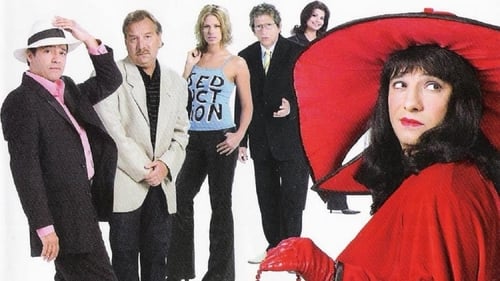
Pepe

Babbel

Gabor
La cinta narra cuatro sucesos similares que ocurren el mismo día ,en concreto el de la final de la Champions League entre el Galatasaray de Estambul y el Deportivo de La Coruña, al mismo tiempo, en cuatro ciudades de Europa. En concreto, se trata de sendos robos de equipaje que sufren una mujer de negocios en Moscú, un peregrino húngaro en Santiago, un excursionista en Estambul y una pareja francesa en Berlín, y los problemas que ese hecho les causa, especialmente con la policía, debido a las diferencias de lengua.
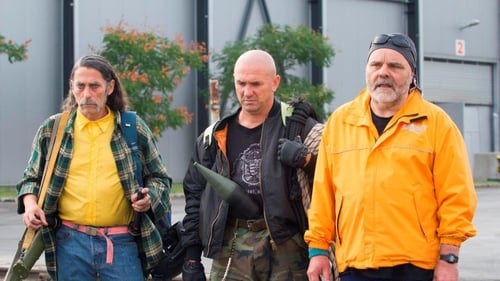
Bodri
The crew of Tibi Balogh sets out on a journey across Hungary to get the ancient Gold Owl statue, as well as the Milk Man. The treasure is worth millions, who gets there first?

Pepe / King Louis II
By the notes of Fiáth Pompeiusz, the one-time friend of Kapa and Pepe, Professor Szirtes has solved the secret of the time machine, and he realizes the invention relying on "special" H2O. Kapa and Pepe shall return by it into the past in order to set time right, which is out of joint, that is, to correct history, to save King Louis II, and prevent the Mohács Disaster. Pepe yields to the not too tender persuasion to enter upon the great journey through time, dies and revives, and they arrive at the battlefield of Mohács in time. Kapa films the events. The Turks win and cut off the king’s, Pepe’s, head, still the Hungarians dictate the peace treaty. Kapa and Pepe want to return, they fill the time machine up with water from the well, yet it won’t start. Even so Kapa and Pepe hover over Budapest and quarrel.

Tatár vezér
Magyar vándor is a 2004 Hungarian action comedy film directed by Gábor Herendi and starring Károly Gesztesi, János Gyuriska and Gyula Bodrogi
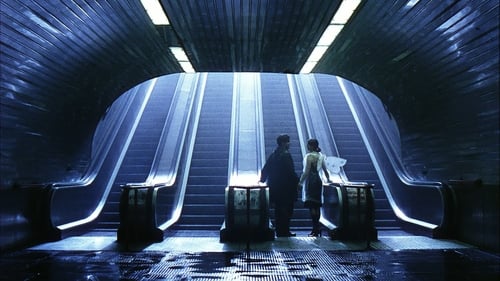
főnök
'Kontroll' narra la historia de la difícil -y ficticia- relación entre los pasajeros y revisores en el metro de Budapest. En ese submundo aparecen personajes como "Roadrunner", quien aparece una y otra vez y se considera miembro de la Sociedad de Liberación de los Pasajeros, dedicándose a manchar a los revisores con spray; éstos lo persiguen acaloradamente por los pasillos, andenes, ascensores, aunque todo esfuerzo es en vano. También está Béla, el maquinista caído, quien se siente tan cómodo en el mundo de parias como Bulcsú. Y está Szofi, su hija, de quien inmediatamente se enamora Bulcsú, incluso a pesar de que viste un disfraz de oso. Aunque también hay una figura sombría entre ellos, una máquina de matar. Nadie sabe quién es. Quizá sólo Bulcsú lo sabe.

Mazsola
The Hungarian version of the "The Seven Samurai" and "The Magnificent Seven".

Pepe
This time, Kapa and Pepe are first of all prisoners of war – and convicts taken to forced labor service, Jews, Hungarian soldiers, German soldiers. Once they are to be executed, then again they are to perform executions. The film tells in spectacular episodes about the fact that in the past more than one century and a half we kept marching from war to war; occupation and liberation turned out to be indifferent, and why couldn’t the Jews execute the SS-guys? Our heroes hover about dilapidated barracks, then again on the bridges of the capital they guess whose satellites or eternal friends for all times we might be just now. In the cupboard, among the preserved fruit bottles, Stalin is still hiding. The authors of the film are cited before court, then in a showcase hospital they are waiting for the end to come. A Soviet soldier-maid closes the film with a Péter Nádas-quote.

szerelő
In the week of the book an interview is made with the writer Péter Simon, whose first book of short stories appeared in the prime of his life.
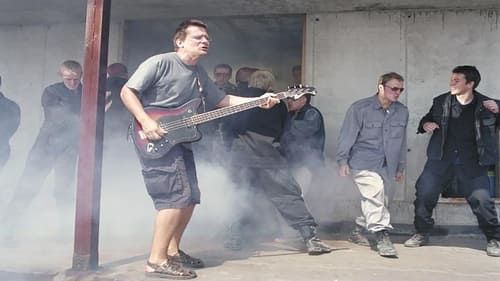
Pepe
Waiters’ competition at Heroes’ Square in the late thirties. Dressed as waiters, Kapa and Pepe awake in the bronze chariot of the millennial sculpture group. They drive along the Danube promenade, and on the concrete reinforcement of the demolished Budapest rondella hotel they get involved in a showdown of political background. In the burnt-down Sports Hall the waiters train for a last supper, Pepe and Kapa run around the big laid table with trays in their hands. While doing so, Pepe keeps crying out: "I am the best one, I am the most beautiful one, I am the king, I am the god..." Sitting in a boat on the Danube, a ship goes past them, and the Niagara falls, majestic and breathtaking, resound in their ears. On each passing away something new will come to life – as rapped by Sub Bass Monster.

Szent Péter

Pepe
Kapa, Pepe and Mesi would like to buy a scrapyard of trains, to start a nostalgia train and earn a lot of money. The capital to start with they want to get from grandpa, who has come home from America with a suitcase full of money. Everybody wants Mesi to approach the old man, because she is the only one he would speak to. But Mesi is more concerned with the idea that she wants a child, by now from anyone, while Pepe is jealous. Kapa’s alleged son emerges, with the mafia behind him: they, too, are eager to get grandpa’s money. After threats and blackmailing, poisoned apples are sent, with only one side of them poisonous. Those dead, by the way, are resurrected by the sound of a song. At last, nobody manages to get the money, but it wouldn’t make sense anyway: it’s all fake. The Statue of Liberty, however, turns out to be blind.


Pepe
In the Kerepesi Street cemetery, three grave diggers contemplate the fate of the world, then they step out of this role and in a sequence of episodes they play the typical figures of contemporary Hungarian reality, the fat cat, the swashbuckler, the victim, underworld chieftains, and present little absurd dramas of love, marriage, friendship, public order and legal safety. The author and the film director walk among them all the time, contemplating, laughing at their plays. The stories starting from the graveyard and returning there warn of the inevitability of death. The author and the director (Gyula Hernádi and Miklós Jancsó) wisely make friends with death.

Sanyi
1979. Gábor H. works in a law enforcement institution. He robs a bank branch, gets into jail. 1989. Gábor H. and the similarly unemployed Sanyi want to get money by robbing.































